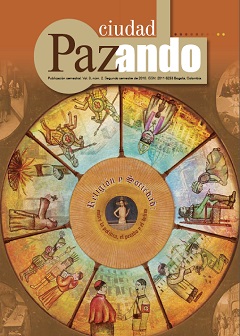DOI:
https://doi.org/10.14483/2422278X.7350Published:
2014-09-04Issue:
Vol. 3 No. 2 (2010): Religion and society: Between politics, sin and crimeSection:
Análisis de coyunturaLibertades religiosas y de cultos en la constitución de 1991: ¿Derechos consagrados o formalidades discursivas?
Keywords:
Constitución Política de 1991, libertad religiosa, libertad de cultos, nación, pluralidad, sometimiento, participación política (es).Downloads
Abstract (es)
La Constitución Política promulgada en 1991 es el primer intento en nuestra historia constitucional dirigido a reconocer los derechos y libertades ciudadanas a las mayorías. Sin embargo, estas conquistas sociales han sido confrontadas por muchos grupos hegemónicos orientados a la preservación y la extensión de sus intereses particulares. Las vindicaciones de las libertades de religión y cultos han encontrado la resistencia de muchos grupos particulares tradicionales. Estos grupos pretenden continuar la primacía de algunos principios religiosos en el orden social requiriendo feligreses como sujetos pasivos ajenos a las nuevas ciudadanías.How to Cite
APA
ACM
ACS
ABNT
Chicago
Harvard
IEEE
MLA
Turabian
Vancouver
Download Citation
License
The Ciudad Paz-ando Journal (RCP) is an open access publication, without economic charges for authors or readers, whose biannual publications are made under the terms of the Creative Commons Attribution - Non-commercial - Share the same License (CC-BY-NC -SA 2.5 CO), with which others may distribute, remix, retouch, and create from the work in a non-commercial way, as long as they give credit and license their new creations under the same conditions.
The copyright holder is Ciudad Paz-ando journal, retaining all rights without restrictions, respecting the terms of the license regarding the consultation, download and distribution of the material.
When the work or any of its elements are in the public domain according to the applicable current law, this situation will not be affected by the license.
Likewise, we encourage authors to deposit their contributions in other institutional and thematic repositories, with the certainty that culture and knowledge is a good for all and for all.

